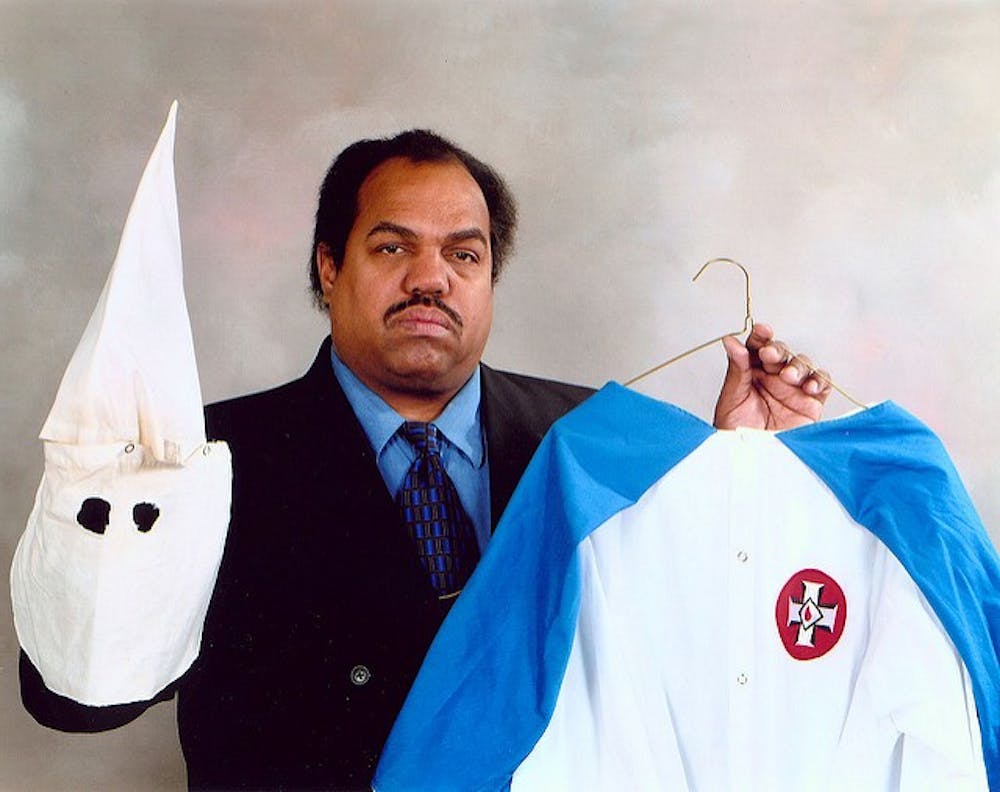The School of Public Affairs hosted musician, author and actor Daryl Davis in an event called “Accidental Courtesy” on Oct. 16 to speak about how he persuaded hundreds of Klansmen to quit the white supremacist organization.
Since the 1980s, Davis has been seeking out and befriending members of the KKK and neo-Nazi groups. Through his friendship with the people in these organizations, he has pushed more than 200 Klan members to leave.
“When I become your friend, you have a friend for life,” Davis said. “Whether you like it or not.”
At 10-years-old, Davis moved to a suburb of Boston where he was one of two black students in his school. This exposure led him to understand the very serious realities of racial gaps within the U.S., he said.
He recalled having a high school teacher bring the head of the American Nazi Party as a speaker. He remembers the man telling him specifically, “‘We're going to ship you back to Africa,’ and ‘all you Jews out there are going back to Israel. If they don't leave voluntarily they will be exterminated in the coming race war.’"
Davis said he could not comprehend that people who knew nothing about him would inflict pain based only on the color of his skin.
"I literally thought they were lying to me," Davis said.
This sparked his fascination with racism and prejudices in the U.S. and his passion for using music to bridge racial gaps.
Davis said he has been ridiculed and criticized for even conversing with KKK members, let alone befriending them. But Davis said that these people are his friends who were just misled.
David told the audience about KKK members that have changed and have realized how serious and wrong their involvement with the organization was. These are men that he is friends with today.
He wants younger generations to lead by example rather than committing any violent acts.
Although Davis believes the current administration has fueled many white nationalists and KKK members through events such as the violent gatherings in Charlottesville, Davis does not want people to be discouraged.
“You have to talk to these people,” Davis said. “See why they think what they think. Talking to non-racists doesn’t stop racists from being racist.”
Correction: This article originally called Davis a jazz musician. He plays many styles, including jazz, blues and rock and roll.





